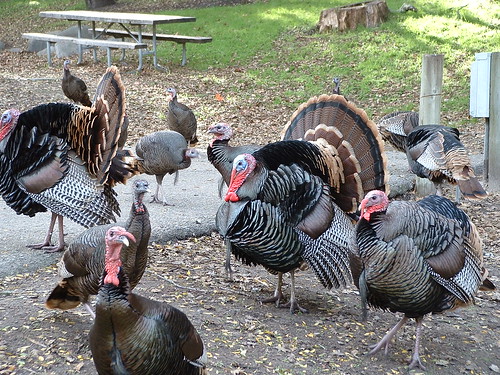It’s Word Soup Wednesday! While the television show The Soup brings you “the strange, obscure and totally unbelievable moments in pop culture, celebrity news and reality TV,” Word Soup will bring you those strange, obscure, unbelievable (and sometimes NSFW) words.
And if you see any Word Soup-worthy words, let us know on Twitter with the hashtag #wordsoup. Your word and Twitter handle might appear right here!
Alice in Wonderland syndrome
Patient: “Everything went from really small to really huge.”
House: “It’s called Alice in Wonderland syndrome.”
“Risky Business,” House, October 31, 2011
Alice in Wonderland syndrome “is a disorienting neurological condition that affects human perception,” in which the afflicted experience micropsia, “a disorder in which objects appear much smaller than normal,” and macropsia, “a disorder in which objects appear much larger than normal.” The name refers to Lewis Carroll’s novel, in which Alice becomes very small and very large.
Arkansas toothpick
Cullen [to Elan who is sharpening a knife]: “What are you going to do with that Arkansas toothpick?”
“Pilot,” Hell on Wheels, November 6, 2011
An Arkansas toothpick is a type of dagger. It may have been invented by James Bowie, the inventor of the bowie knife.
Die Hard
Dr. Benoit to Helen Magnus: “Who are you? You’re going all Die Hard out here.”
“Monsoon,” Sanctuary, October 28, 2011
To go all Die Hard refers to the 1988 film in which Bruce Willis’ character single-handedly and covertly thwarts a group of terrorists. It also means “to kick someone’s ass.”
Hawthornes
Singer: “I’ve got a pocketful of Hawthornes.”
“Advanced Gay,” Community, November 3, 2011
Hawthorne refers to the character, Pierce Hawthorne, who owns Hawthorne Wipes, a company that manufactures cleaning and disinfecting towelettes. Hawthornes refer to the wipes. A brand name that has become genericized is a metonym. Other trademarks that are often seen in semi-generic use include kleenex for tissues, xerox for photocopy, and saran wrap for plastic wrap.
jägerbar
Eddie [sniffs claw]: “I think jägerbars use these for disemboweling.”
“Bears Will Be Bears,” Grimm, November 4, 2011
The jägerbar is a sort of ferocious were-bear that hunts. The word is German in origin, where jäger means “hunter” and bar means “bear.” Jägermeister is an alcoholic beverage that literally means “hunt master.”
Moneyed American
Jon Stewart: “What the one percenters – ”
John Hodgman: “We prefer the term Moneyed Americans.”
November 1, 2011, The Daily Show
Moneyed American is a play on terms such as African American or Asian American.
online shush
Mac [about not being friended on Facebook]: “It’s like an online shush.”
“The Anti-Social Network,” It’s Always Sunny in Philadelphia, November 3, 2011
To shush someone is to demand silence by saying shush, and is imitative in origin. Ignoring someone’s friend requests, emails, or messages could be said to be an online shush.
pipi and bubbles
Jess: “I saw Nick’s pipi. And his bubbles.”
“Naked,” New Girl, November 1, 2011
Slang for male genitalia is many and varied.
sexiversary
Jenny: “I forgot our sexiversary!”
“Bobum Man,” The League, November 3, 2011
A sexiversary is the date on which two people first had sex, and is a portmanteau, or blend, of sex and anniversary.
walking boss
Elan: “This ain’t the plantation. . .walking boss.”
“Pilot,” Hell on Wheels, November 6, 2011
A walking boss is the foreman of a work crew who walks or rides among the workers.


